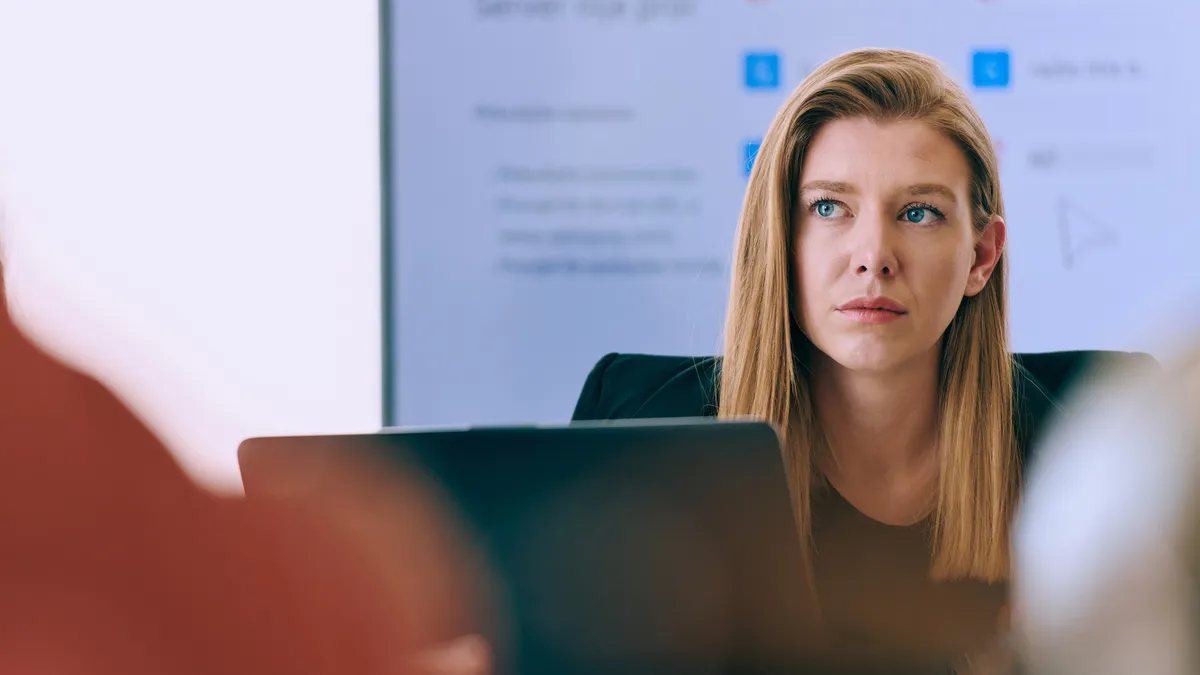About a year after starting her own law firm focused on commercial contracts work, ex-Tesla lawyer Laura Frederick realized she needed to find a way to generate a steady stream of new clients.
Frederick decided to turn to LinkedIn, where in 2020 she began a daily rhythm of posting practical tips about drafting and negotiating contracts. She would also engage with commenters, and she quickly realized there was a strong demand for the type of content she was providing.
This interest ultimately prompted Frederick to write a book focused on contracting driven by information originally featured in her LinkedIn posts. The lawyer with more than 20 years of experience working in-house and at law firms has also created a training platform for attorneys and other legal professionals called “How to Contract.”
“I would tell the world what I thought about some [contracts] point every day, and it just ballooned into so much more,” Frederick said.
She told her story during a June 2 webinar Frederick hosted with fellow legal professionals who have posted social media content about contracts and related areas of the law to successfully build their brands and make new connections.
The speakers detailed the different ways they have used some of the major online platforms to provide educational content, as well as poke fun at themselves and the legal industry.
Other panelists besides Frederick shared that LinkedIn was also where they first started to post about contracts and converse with others about them.
Lisa Lang, general counsel of Kentucky State University, said it was an article she read about contracts technology that prompted her desire to post about the issue on the professional networking platform.
In addition, she was examining contract management systems for her work, so the topic provided “fertile ground for lots of content.”
“It was content that I felt the world was ready for because I felt like there were a lot of general counsels and in-house counsels who were desperate to know and understand better what was out there,” Lang said.
LinkedIn is also the platform where Lang connected with Nada Alnajafi, an experienced in-house attorney who was posting contracting tips. The two would comment on each other’s posts, and the active conversations with other users about contracts prompted Alnajafi to launch her Contracts Nerds blog.
Additionally, the questions LinkedIn commenters would ask, particularly about redlining rules, helped spark Alnajafi’s desire to write a book.
Earlier this year, Alnajafi published "Contract Redlining Etiquette: How to leverage the power of redlines for faster and smarter contract negotiations.” She noted that Amazon typically recommends those who purchase her book also purchase Frederick’s “Practical Tips on How to Contract: Techniques and Tactics from an Ex-BigLaw and Ex-Tesla Commercial Contracts Lawyer.”
Alnajafi called LinkedIn “a great place to start testing out your content for a book and understanding what your potential readers want to see.”
Frederick encouraged legal professionals to also use LinkedIn to support and promote others in their networks.
TikTok
Meanwhile, for legal professionals wanting to post about a serious topic such as contracts, but do so in a more lighthearted manner, TikTok could be a good option.
Flo Nicolas, a lawyer and legal technologist, said one of her first videos on the platform was about contracts technology. It featured someone on a business team going to an attorney’s house and ringing their doorbell in hopes of finding a contract.
She was making the point that if the business professional was properly leveraging contract tech, they would have already known who had the contract and how long they’ve had it.
“You can literally poke fun at yourself and poke fun at your career, but while you're doing that you're also offering some type of educational element to it,” Nicolas said.
Matt Margolis, head of community at flexible legal talent provider Lawtrades, said he has also posted contract-related skits to TikTok.
He said one video featured an attorney spending a long time drafting a contract and sending it to their boss, only to realize right after sending the email that there was a glaring typo in the contract.
“I liked that kind of content on TikTok because it's something we all can relate to, especially if you're a transactional attorney,” Margolis said. “We’ve all sent that email.”
Alex Su, head of community development at CLM provider Ironclad, said he initially felt uncomfortable about making videos on TikTok.
But after he began making lighthearted ones, Su said he stopped worrying about what others would think and even used his young daughter’s toy phone as one of his regular props.
He has since amassed over 75,000 followers for his @legaltechbro account, and his videos regularly generate thousands of views. Some videos touch on contracts-related topics, but others feature jokes about issues ranging from mediations to law school rankings.
“You do have to find what works for you and what your niche is, and sometimes that means getting out of your comfort zone and posting something that feels risky,” Su said.
Su said he was also initially hesitant to actively post on Twitter, because unlike LinkedIn, there are a lot of anonymous users.
What he has realized since starting to tweet is that law firms and litigators are much more present on Twitter than in-house lawyers. As a result, he said content about contracts does not perform as well on Twitter as on LinkedIn, but he is continuing to seek ways to create engagement on the platform.
Margolis said he has found Twitter to be a good place to make quips about the legal profession and get comfortable with putting out “imperfect content” because the platform has no edit button.
Also, because of the anonymity some users seek on Twitter, he has found legal professionals sometimes use the platform to share about challenges they are encountering in their transactional work.
“Normally on LinkedIn they may not vent about that, but seeing it on Twitter actually will allow me to be like, ‘Oh, I didn't realize that's an issue someone's dealing with in the field,’” Margolis said. "It's good to know."
Meanwhile, Nicolas said it has taken her time to build a following on Twitter.
But she said the platform has been a good place for her to practice a trait that is important to succeed on any social media site: patience.
“It's not going to always happen overnight, but if you just keep posting and just stick to what you know, I think eventually people will start following you,” Nicolas said.



















